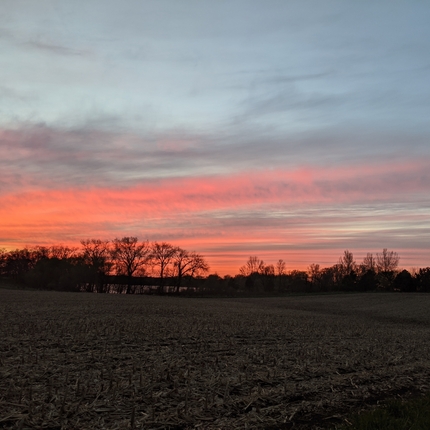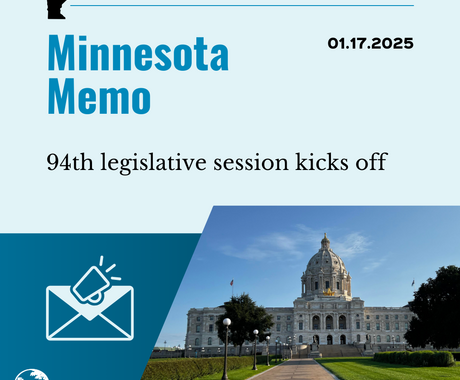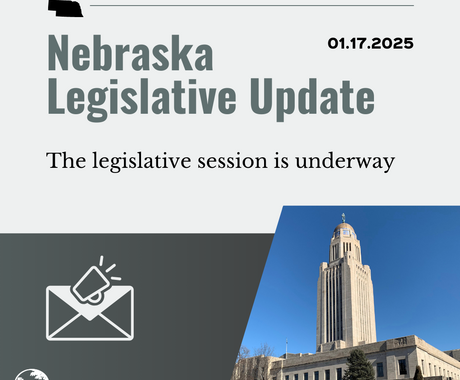By Molly Malone, former staff member
The 2023 Minnesota legislative session has been described as historic, hectic, and unprecedented. There’s an historically high number of new legislators and lawmakers are working with a $17.6 billion budget surplus. The fact that a budget framework agreement came out in March rather than the typical May timeframe is a prime example of the pace of the 2023 session.
All legislators in control this year represent metro districts, so there is increased urgency for rural engagement.
Many of the bills are not new. They were proposed in prior years and debated, amended, and reintroduced this year. In the process, the legislation has benefited from diverse input. Metro-based legislators have taken our calls, been easy to work with, and welcomed the Center’s input to adjust language to be inclusive for rural Minnesotans.
However, work remains to make sure rural voices are heard. For example, as lawmakers debate bonding for infrastructure projects, it’s clear most of the funding is headed to majority party districts in cities. Bigger ticket items, often based in metro areas, get most of the attention, leaving relatively smaller projects for rural areas to fall by the wayside. A few million dollars may not go far in the Twin Cities, but it is a substantial percentage of most rural budgets.
We expect a bonding bill (or two) to be approved this year, despite failure to do so in 2022—which is when the process should have taken place, as it was a designated bonding year.
The rapid pace and sheer volume of proposed legislation have resulted in lower-profile bills falling under the radar. Of the thousands of bills introduced, we are highlighting the following because of their potential rural impact:
Meat and poultry processing
House File (HF) 1302/HF 1303: This bill would support Minnesota's small meat processors by providing funding for educational grants, technical assistance, and the establishment of a certification navigator position. Supporting small businesses as a key part of Minnesota’s meat processing system will not only give producers and consumers options, it will help the rural communities where small producers and processors operate. These programs expand the workforce and enable entrepreneurship. As many of the commercial processors employ a large immigrant population, this bill could enable many of those who already have meat processing skills to go into business for themselves.
The bills combined only offer $400,000 of support, a far cry from the Center’s home state of Nebraska's, which passed legislation last year to the tune of $10 million.
Rural broadband
HF 2313/ Senate File (SF) 2169: These bills would allow for more rapid broadband expansion by increasing the cap on Border-to-Border Broadband Grant applications from $5 million to $10 million, along with a $276 million appropriation for the program. These changes would allow for more comprehensive development, rather than patchwork coverage.
Local climate action plans
HF 597/SF 1388: This legislation will establish a grant program for cities, counties, and nonprofits to create action plans addressing climate change and/or reduce their contributions to the causes of climate change. The Center appreciates the advantage given to smaller communities incorporated in the bill. Applicants with populations less than 20,000 are only required to provide a 5% match whereas those with populations greater than 20,000 must put up a 100% match.
Getting Minnesota's share of federal funding
There are several proposals designed to activate, unlock, or match federal funds for Minnesotans. Many address climate and energy by targeting funds from the Inflation Reduction Act and Infrastructure Investment and Jobs Act.
HF 1656/SF 1622 establishes the Minnesota State Competitiveness Fund. This will help ensure the state meets its climate goals by providing grants to small cities, Tribes, electric utility companies, and schools applying for matching federal funds. The bill invests $115 million to unlock billions in federal funding so everyone can benefit from the transition to renewable energy. Similar bills to access federal funds include HF 1550 (transportation focus), HF 2405 and HF 2406 (federal infrastructure funds task force and coordinator).
Transmission
HF 2570: This bill would allow developers working with a utility to build high-voltage transmission lines in the Minnesota Department of Transportation’s rights of way. As the Center’s report on curtailment demonstrates, Minnesota needs significantly more transmission to support existing and proposed energy projects. This bill alone won’t solve transmission issues, but it’s a piece of the puzzle. Using existing right of ways allows for more direct transmission routes, reduces costs, minimizes the impact to area landowners, and expedites the multi-year permitting process.
Native vegetation
HF 1828/SF 1983: The Board of Soil and Water Resources (BWSR) may soon upgrade its Habitat Friendly Solar Program to the Habitat Friendly Utilities Program. Under this proposal, BWSR would establish and promote the successful establishment of native vegetation as part of utility projects, including solar and wind projects, pipelines, and electrical transmission corridors through financial and technical assistance. The program could get $1 million to protect Minnesota's landscape, habitat and water resources in conjunction with utility projects.
Drainage portal
HF 2354/SF 2679: This bill would establish an online drainage registry portal for public ditches. The Center has been watching the bill, as there was consideration of a 30-day comment period before ditch system repairs could commence. Drainage issues are often uncovered in the spring before planting and a 30-day wait could have meant missing the growing season. Thankfully, the 30-day waiting period on repairs is no longer on the table.
Part of this proposed online system would be a publicly searchable electronic database of public ditches. With a new generation of farmers using technology more often, a modernized system may be welcome. However, local drainage authorities already have substantial notification requirements and this adds a layer of administrative work to local governments without any additional funding. Farming communities with more public ditches will be disproportionately impacted—some have hundreds of public ditch systems—and they are in rural areas. As part of this proposal, we’d like to see funding set aside for those communities who will be required to do the work inputting data, in addition to what they already do notifying local landowners.
What can you do?
Legislators will be on break April 5 to 10 and will resume the session on April 11. While on break, many of them will head home. If you see your representatives out in the community, encourage their support for what resonates with you.
Let us know if you have any insight or feedback from your legislators. Please reach out to me at [email protected] or 507.513.8545.





